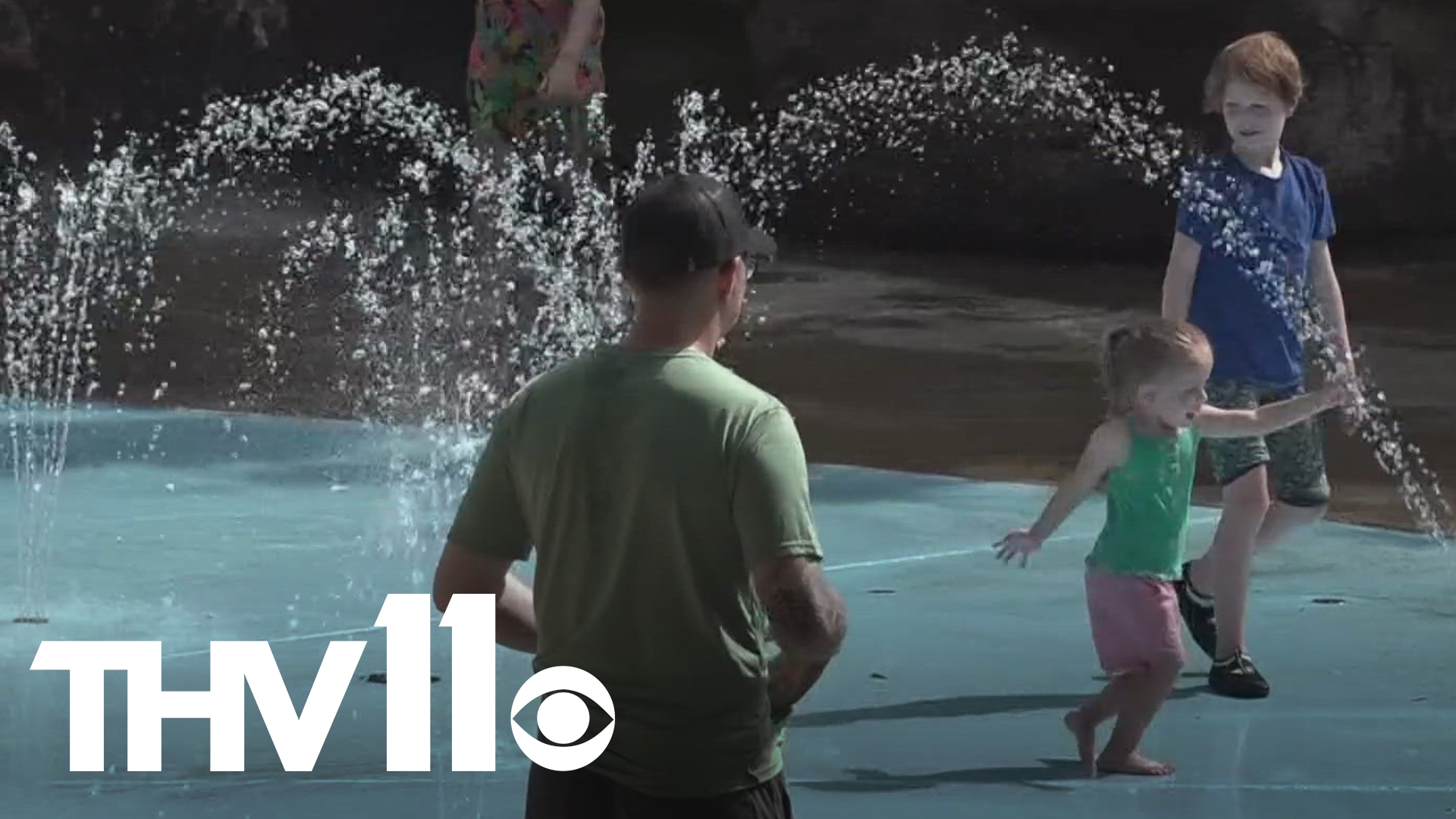LITTLE ROCK, Ark. — Being outside for too long in this excessive heat can bring consequences— like heat exhaustion which can lead to a heat stroke if you're not careful.
"Unfortunately, I think every hospital in the area is seeing heat-related illnesses right now," said Dr. Robert Hopkins, an Internal Medicine and Pediatrics doctor at UAMS.
Dr. Hopkins encourages everyone to be proactive when out and about in the excessive heat.
"Making sure that you're drinking plenty of fluids, making sure that you're doing what you can to protect yourself from the sun," he added.
He also said knowing the warning signs and recognizing the difference between heat exhaustion and heat stroke is important too.
Heat exhaustion happens when your body temperature goes above the normal range, which is around 98 degrees. You might begin to feel dizzy or nauseous and experience heavy sweating and thirst.
However, with a heat stroke, your body temperature goes above 104 degrees, and the symptoms get worse.
"You stop sweating, but more importantly, you start to feel confusion. You start to feel sluggishness, you [have a] fast heart rate, and that's when you really get into a crisis situation," Dr. Hopkins explained.
All those things are something that Little Rock firefighters try to avoid, but unfortunately, heat exhaustion can be common for them this time of year.
Little Rock Fire Department Captain Jacob Lear-Sadowsky shared that they just had a heat exhaustion incident that happened on Wednesday.
"We had a very large commercial apartment structure fire that required multiple alarms. We had two firefighters treated on the scene for some heat exhaustion. They were not transported by MEMS, but they were given fluids via IV to help them rehydrate," Captain Lear-Sadowsky explained.
He also said it doesn't take long to overheat in the thick gear they have to wear out on the job.
"Our turnouts are there to protect us from the heat, and they really don't do a great job at releasing heat," he added.
In addition to firefighters taking care of each other, they've also been helping people in the community who are experiencing heat-related illness.
"We do see a spike or a rise in EMS-related heat injuries, especially for individuals that work outside," he added.
"Increase your fluids. Let's make sure you're in a shaded place and address the situation now," Dr. Hopkins advised.
In addition to drinking more water, Dr. Hopkins recommends that people should incorporate more potassium and sodium into their diet.

